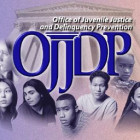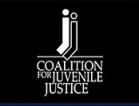
Georgia’s Juvenile Code Rewrite — a sweeping revision of the state’s 40-year-old juvenile law — will likely be ready for a vote in the next legislative session thanks to support from Gov. Nathan Deal and some in the Georgia House and Senate leadership, according to two non-profits involved in the drafting of the legislation. “The time has come for us to rethink how our state is responding to children who have found themselves in trouble with the law,” said Gov. Deal in a news release. “I applaud the careful thinking and inclusive engagement that has gone into developing the Child Protection and Public Safety Act.”
Representatives from the Barton Child Law and Policy Center of the Emory School of Law and Voices for Georgia’s Children, said, this week that the Act, Senate Bill 127, received commitments from Gov. Deal and Georgia House and Senate leadership “to ready the measure for a vote in 2012.” Voices lists the legislation's current status as "in the Senate Judiciary Committee" with "general support from the Governor's office as well as the office of the Speaker." “From the beginning, this process has been a great example of how to build good, thoughtful and effective legislation,” said sponsor Senator Bill Hamrick (R- Carrollton), chairman of the Senate Judiciary Committee (SJC). “We have had buy-in from all the players: from the courts to the prosecutors, defense attorneys, service providers, youth and families; pretty much every interested party.”
JUSTGeorgia, a coalition that includes Voices and Barton along with non-profit Georgia Appleseed, has led the rewrite effort as a vehicle to improve Georgia’s juvenile laws and the underlying social service systems. Barton’s Policy Director Kirsten Widner and Voices Advocacy Director Polly McKinney contend that the rewrite is the culmination of more than four years of research and consensus building to solve dilemmas faced by children, families, courts, detention facilities and taxpayers. SB 127, they said, is based on data-driven “best practices,” with an eye to timeliness and fiscal responsibility.









